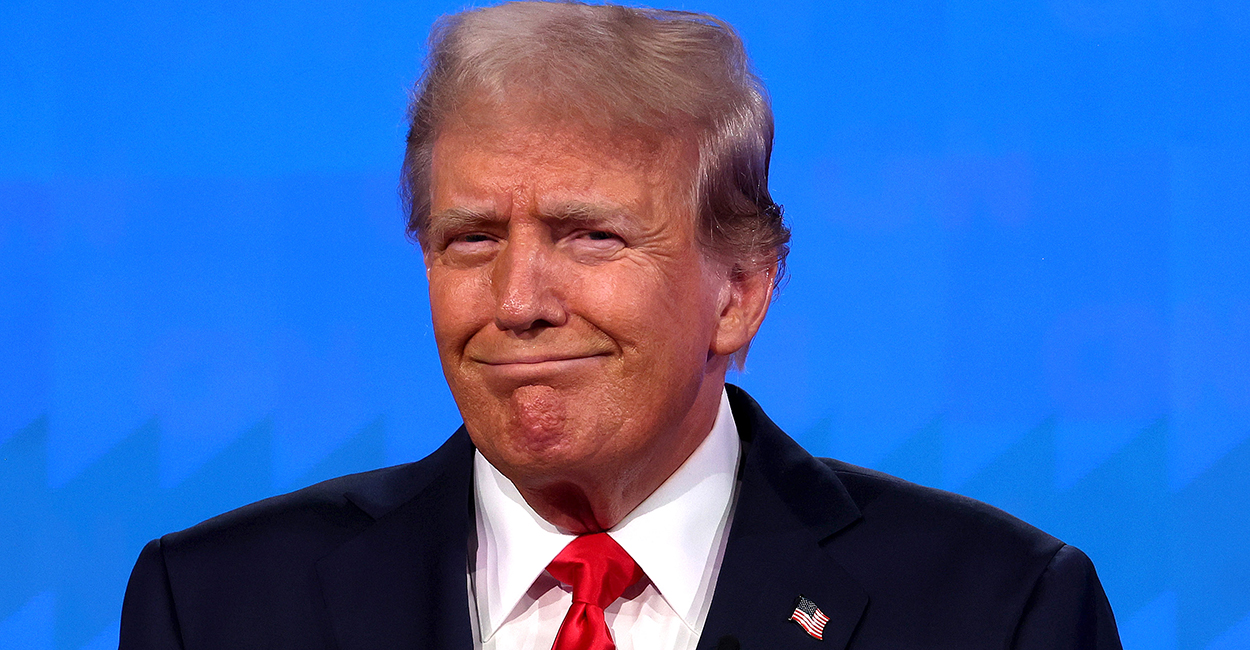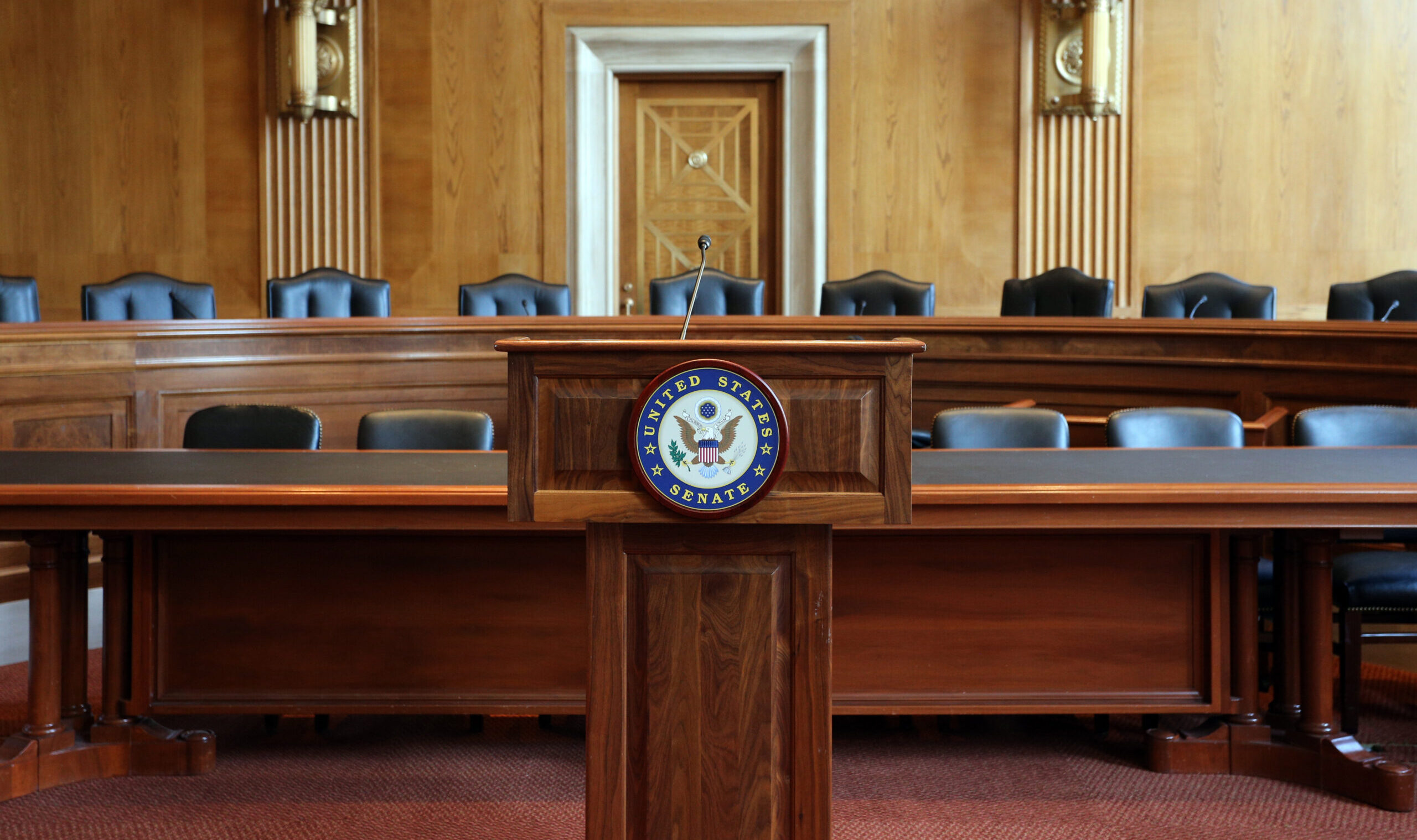
Share To Alt-Tech
This article was originally published on Daily Signal - Elections. You can read the original article HERE

In what is undoubtedly one of the most significant constitutional decisions it has ever issued with respect to the separation of powers and the powers of the presidency, the Supreme Court issued a 6-3 decision Monday saying that former presidents are entitled to broad immunity from criminal prosecution after they leave office for acts committed while in office.
The decision in Trump v. U.S., with a majority opinion written by Chief Justice John Roberts, is just as historic as the high court’s March 4 decision in Trump v. Anderson, in which the court held unanimously that Trump could not be disqualified from the presidential ballot under the insurrection clause of the 14th Amendment.
The Supreme Court’s decision in Trump v. U.S. is one, however, that will likely have a bigger impact on how presidents are likely to act in the future while in office.
In the wake of criminal charges brought against him by special counsel Jack Smith for acts Trump undertook while contesting the outcome of the 2020 presidential election and during the events of Jan. 6, 2021, Trump asked the Supreme Court to decide whether a former president has absolute immunity from criminal prosecution for his “official” acts as president.
This is an issue of first impression before the high court. The closest case on point is Nixon v. Fitzgerald (1982), in which the court held that a president has absolute immunity from civil liability arising from any acts “within the ‘outer perimeter’ of his official responsibility.”
Trump argued that former presidents should be absolutely immune from criminal prosecution for any “official acts” they undertook as president, with the sole exception being for acts which led to a president’s impeachment by the House of Representatives and subsequent removal from office by the Senate after a trial.
As support, Trump cites the Constitution’s impeachment judgment clause, which provides:
Judgment in Cases of Impeachment shall not extend further than to removal from Office, and disqualification to hold and enjoy any Office of honor, Trust or Profit under the United States: but the Party convicted shall nevertheless be liable and subject to Indictment, Trial, Judgment and Punishment, according to Law.
Trump noted that, although the Democrat-run House impeached him twice while he was in office, the Senate acquitted him both times following a trial. Moreover, Trump claims, the second impeachment trial covered “much of the same conduct charged in the indictment.”
Judge Tanya Chutkan, who is presiding over the D.C. criminal case brought by Smith, rejected Trump’s immunity claim, holding that a former president “may be subject to federal investigation, indictment, prosecution, conviction, and punishment for any criminal acts undertaken while in office.” Her ruling was affirmed on appeal by the U.S. Court of Appeals for the D.C. Circuit, which declined even to extend the Fitzgerald standard to the criminal context.
Writing in Federalist No. 70, Alexander Hamilton decried feebleness in a president and said that an effective president must be vigorous and ever-prepared to act energetically, decisively, and with dispatch if he is to best serve our national interests. The president of the United States, Hamilton wrote, should never hesitate out of fear of the possibility of being criminally prosecuted after leaving office for decisions he made while in office—especially in times of crisis.
While rejecting Trump’s broader argument premised on the impeachment judgment clause—Roberts stated in his majority opinion that “the text of the Clause provides little support for such an absolute immunity”—the Supreme Court, sensitive to the concerns raised by Hamilton and by the Fitzgerald court, still gave Trump’s lawyers most of what they wanted. The high court provided Trump (and all future former presidents) with a broad measure of protection for official actions he and others undertake while in office.
Indeed, Roberts noted that while former presidents are less likely to be prosecuted than they are to be sued, the threat of being sent to prison would no doubt have a far greater chilling effect than the possibility of paying a civil monetary judgment.
Roberts noted that, although a president shares certain powers with Congress, Article II of the Constitution vests certain powers—such as the power to issue pardons, veto legislation, nominate judges, or negotiate treaties—exclusively with the president. The court made it clear that presidents are absolutely immune for actions taken within their exclusive constitutional authority.
The high court stated that, as Trump’s lawyers had conceded during oral argument, former presidents are not immune for unofficial acts that they undertake in office (Bill Clinton’s deposition testimony, where he likely perjured himself, in the Paula Jones case would be a quintessential example of an unofficial act undertaken while he was still in office). But the court provided some guidance about how to distinguish between what is an official act and what is an unofficial act, while leaving it up to the trial court to take the first crack at applying these standards to the allegations against Trump.
Borrowing from Fitzgerald, the court held that former presidents are presumptively immune from prosecution for actions they undertook within the outer perimeter of their official responsibilities, and that it is the prosecution’s burden to present enough evidence to overcome that presumption by showing that such a prosecution would pose no “dangers of intrusion upon the authority and functions of the Executive Branch.”
Moreover, Roberts stated, a reviewing court may not inquire into a president’s motives, since conducting such a “highly intrusive” inquiry would undoubtedly involve courts examining sensitive internal deliberations based on mere allegations of wrongdoing. Such “broad-reaching discovery,” Roberts wrote, could “seriously cripple the President’s exercise of his official duties.”
Furthermore, the Supreme Court added that testimony or private records of the president or his advisers probing such conduct may not be admitted as evidence at trial, adding to the government’s burden of persuasion.
While leaving many issues for the trial court and, potentially, the D.C. Circuit to ponder, the high court’s majority did dispatch some allegations against Trump.
The court held that Trump’s discussions with Justice Department officials clearly fell on the side of official acts within a president’s “conclusive and preclusive” authority for which he cannot be prosecuted (and that may also have an impact on pending criminal charges against former Assistant Attorney General Jeff Clark).
The majority also cast serious doubt—without deciding the issue—on the viability of the charges against Trump stemming from his communications with then-Vice President Mike Pence on Jan. 6, 2021, the day of the Capitol riot. The court noted that communications between presidents and vice presidents about the scope of their official responsibilities are considered official acts, which would seemingly cover the scope of Pence’s duties under the Constitution and the Electoral Count Act with respect to the Electoral College certification process.
However, since the vice president is also the president of the Senate, a legislative body, the Supreme Court remanded this issue to the trial court to assess whether a prosecution involving Trump’s alleged attempts to influence Pence’s oversight of the election certification proceedings Jan. 6 in a joint session of Congress would “pose any dangers of intrusion on the authority and functions of the Executive branch.”
The court touched upon—again, without deciding—other aspects of the case against Trump.
These included Trump’s interactions with state officials claiming that the 2020 election results in their states were tainted by fraud and his involvement in arranging for contingent electors (referred to as “fake” electors by the mainstream media) to cast votes for him in states where there was still ongoing litigation. Roberts said opining on this matter would involve “a close analysis of the indictment’s extensive and interrelated allegations.”
Regarding Trump’s speeches and social media posts on and around Jan. 6, 2021, when the Capitol riot occurred, Roberts left open the possibility that some of those remarks, “perhaps as a candidate for office or party leader,” might fall on the side of unofficial conduct. But the chief justice added that “Presidents possess extraordinary power to speak to his fellow citizens and on their behalf,” and as a result, “most of a President’s public communications are likely to fall comfortably within the outer perimeter of his official responsibilities.”
Roberts concluded his majority opinion by stating:
The President enjoys no immunity for his unofficial acts, and not everything the President does is official. The President is not above the law. But Congress may not criminalize the President’s conduct in carrying out the responsibilities of the Executive Branch under the Constitution. And the system of separated powers designed by the Framers has always demanded an energetic, independent Executive. The President therefore may not be prosecuted for exercising his core constitutional powers, and he is entitled, at a minimum, to a presumptive immunity from prosecution for all his official acts. That immunity applies equally to all occupants of the Oval Office, regardless of politics, policy, or party.
Precisely so!
Once the case is remanded to the lower court, Chutkan will have to assess the impact of Monday’s decision. The thumb on the scale will favor Trump, not the special counsel. Moreover, Chutkan also will have to grapple with the extent to which Fischer v. U.S., which the high court announced Friday, applies to Trump.
In Fischer, the Supreme Court ruled in favor of one of the Jan. 6 defendants and narrowed the scope of 18 U.S.C. § 1512, a federal statute enacted in the wake of the Enron scandal that addresses obstruction of an official proceeding. Two of the four charges pending against Trump in that case allege violations of that section of the code.
Chutkan may also decide to take up an issue raised by Justice Clarence Thomas in a concurring opinion, and which U.S. District Judge Aileen Cannon is currently considering in the Florida classified documents case: whether Smith’s designation as special counsel by the Justice Department violates the Constitution’s appointments clause, since Smith was neither nominated by a president nor confirmed by the Senate to that position. Thomas left no doubt what he thinks about that issue.
All of this makes it extremely unlikely that Trump’s D.C. case will be heard before the Nov. 5 election, if ever. Monday’s ruling will also have a dramatic effect on the pending charges against Trump in Fulton County, Georgia, potentially crippling that already-troubled prosecution as well.
Overall, it was a very good day for Donald Trump.
This article was originally published by Daily Signal - Elections. We only curate news from sources that align with the core values of our intended conservative audience. If you like the news you read here we encourage you to utilize the original sources for even more great news and opinions you can trust!










Comments